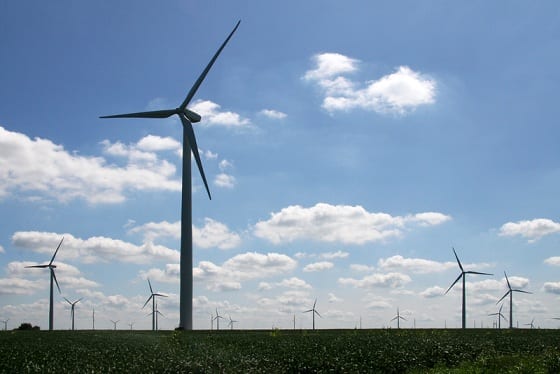Germany producing hydrogen fuel from excess wind energy
September 22, 2015Germany is leading the way in developing the world’s first hydrogen economy
Germany has taken the lead in establishing a hydrogen economy, which is one where hydrogen fuel is one of the most prominent energy sources in use. While the country is still quite reliant on fossil-fuels and other forms of conventional energy, it has invested quite heavily in hydrogen fuel and the development of a comprehensive hydrogen infrastructure. Germany has been supporting the establishment of a hydrogen economy with other forms of renewable energy, particularly wind power.
Partnership seeks to build more hydrogen stations throughout the country
In Germany, excess wind energy is being used to produce hydrogen fuel. Linde Engineering, as well as several other companies, has been working with the automakers in order to install new hydrogen fuel stations, which will be used to power vehicles that are equipped with fuel cells. Fuel cells generate electrical power through the consumption of hydrogen. The only byproduct of this energy production is oxygen and water vapor, making fuel cell vehicles more environmentally friendly than their conventional counterparts.
H2 Mobility intends to build 400 hydrogen fuel stations by 2023
 Linde and its partners are part of the Clean Energy Partnership, which is supported by the German government. Germany intends to become a leader in clean transportation in the near future. Another project, called H2 Mobility, aims to build some 400 hydrogen stations throughout the country by 2023. These stations will provide fuel to those with fuel cell vehicles and help Germany attain its goals of becoming a much more prominent market for clean vehicles.
Linde and its partners are part of the Clean Energy Partnership, which is supported by the German government. Germany intends to become a leader in clean transportation in the near future. Another project, called H2 Mobility, aims to build some 400 hydrogen stations throughout the country by 2023. These stations will provide fuel to those with fuel cell vehicles and help Germany attain its goals of becoming a much more prominent market for clean vehicles.
Fuel cells may become more prominent in Germany in the near future
Fuel cell vehicles have yet to be launched commercially, with only a handful of automakers offering these vehicles currently. Fuel cells are not only used in vehicles, of course, and they have been providing power in several industrial sectors for several years. These energy systems may become one of the primary sources of energy for Germany in the coming years, especially as the country seeks out ways to produce energy in an environmentally friendly manner.

 With over 15 years of reporting hydrogen news, we are your premier source for the latest updates and insights in hydrogen and renewable energy.
With over 15 years of reporting hydrogen news, we are your premier source for the latest updates and insights in hydrogen and renewable energy.